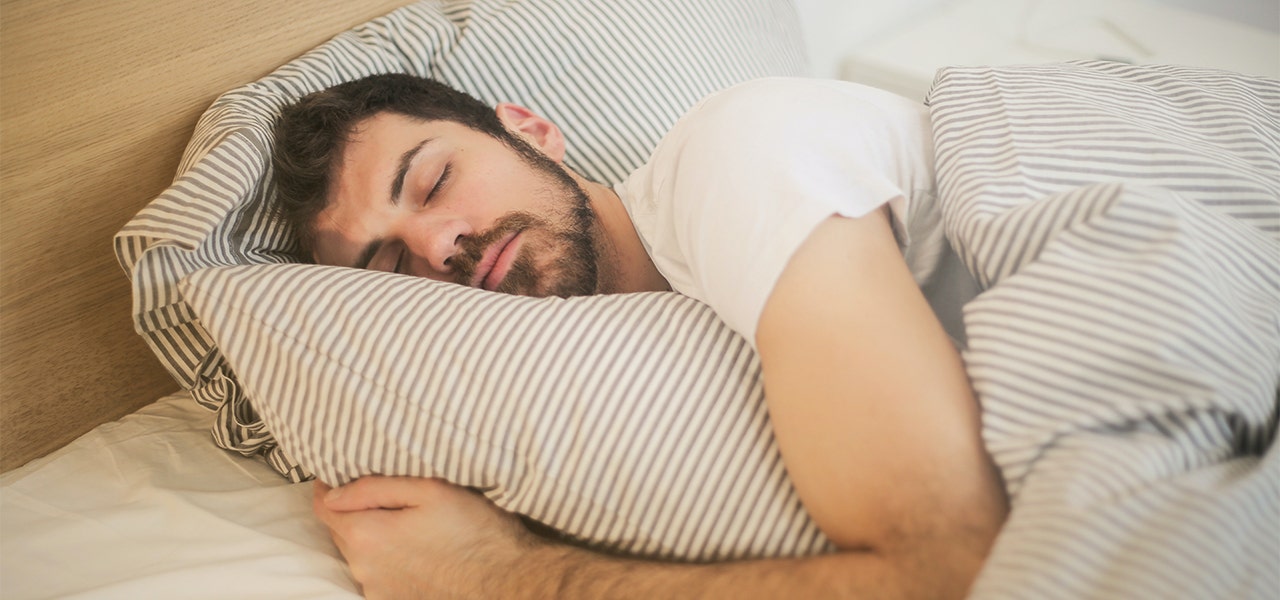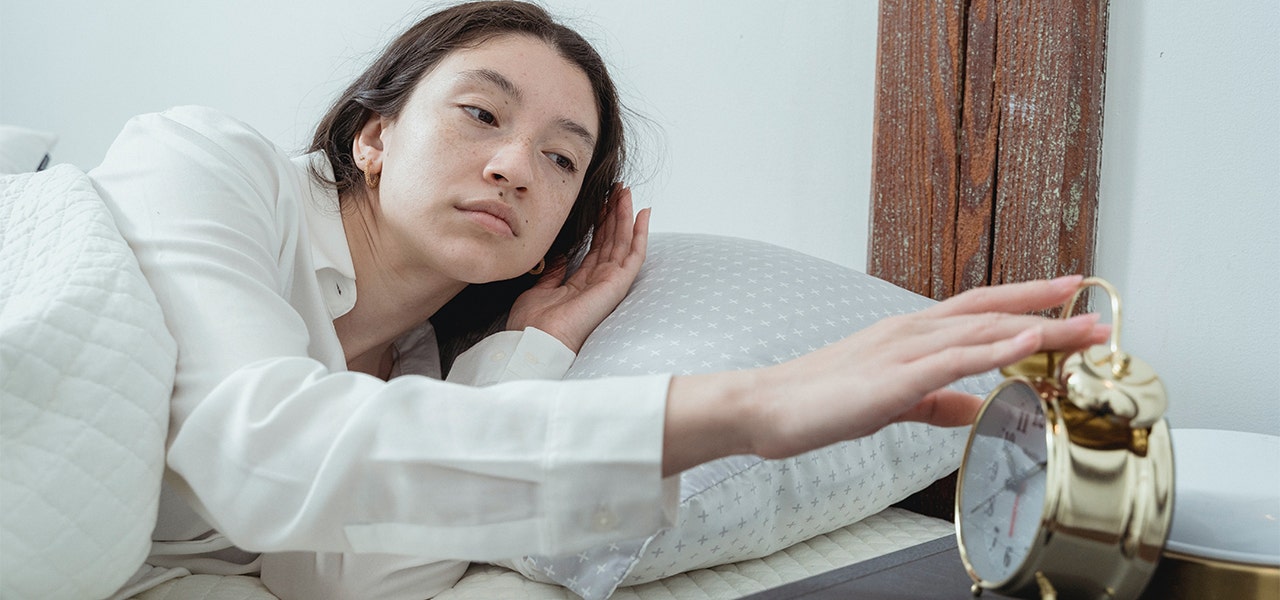Sleep is essential for our physical and mental well-being. But, does more mean better? Is there such a thing as too much sleep?
Oversleeping sure can mess up your morning. Whether it makes you late for work, forces you to skip breakfast or has you leaving your poor dog without a proper walk in your rush to start the day, oversleeping can lead to stress and inconvenience. But, are there actual health risks of oversleeping? Read on to learn more and to get some helpful tips on how to stop oversleeping.
What Is Oversleeping?


Before we delve into the potential downsides of oversleeping, it's important to define what it actually means. Oversleeping, also known as hypersomnia, refers to consistently getting more sleep than your body needs.
While the recommended amount of sleep varies with age, most adults require around 7-9 hours of quality sleep per night to function optimally. Sleeping significantly more than this amount on a regular basis can be considered oversleeping.
The symptoms of oversleeping can be deceptive. You might feel groggy, disoriented and fatigued despite spending extra hours in bed – the opposite of what you’d expect, right?
5 Reasons You May Be Sleeping too Much
To understand the reasons behind oversleeping, let's explore some of its common causes.
Poor Sleep Quality
One common reason for oversleeping is poor sleep quality. If you're not getting restorative, deep sleep during the night, you may feel the need to oversleep to compensate for the lack of quality rest.
Poor Sleep Quantity
One of the most prevalent reasons for oversleeping is trying to compensate for accumulated sleep debt. When you consistently skimp on sleep during the workweek, you may find yourself trying to catch up by sleeping excessively on weekends. However, this practice disrupts your sleep schedule and can lead to further problems.
Sleep Disorders and Other Health Conditions
Certain sleep disorders, such as sleep apnea or narcolepsy, can disrupt your sleep patterns and lead to excessive daytime sleepiness, causing you to oversleep. Additionally, chronic illnesses like fibromyalgia and chronic fatigue syndrome can lead to excessive daytime sleepiness.
If you suspect you might be suffering from a sleep disorder or if you have a health condition that is affecting your sleep, talk to your doctor for proper diagnosis and treatment.
Depression and Anxiety
Mental health conditions like depression and anxiety can lead to oversleeping as a coping mechanism. Depression can sap your energy and motivation, making it difficult to get out of bed. Similarly, other mental health conditions like anxiety can lead to difficulty falling asleep and frequent wakeups, resulting in excessive sleep when you can actually get it.
Conversely, oversleeping can exacerbate these conditions, creating a vicious cycle of sleep deprivation and oversleeping. If you’re suffering from a mental health condition, reach out to your doctor or a mental health professional.
Medications and Substance Abuse
What goes into your body affects how your body functions – common sense, right? Certain medications, such as antidepressants and sedatives, can cause drowsiness and lead to oversleeping.
Additionally, excessive alcohol consumption or recreational drug use can also interfere with sleep patterns, causing you to sleep more than usual.
Health Risks of Oversleeping


While getting adequate sleep is essential for good health, consistently oversleeping can have several negative consequences. Oversleeping can disrupt your natural sleep-wake cycle, leading to a vicious cycle of lethargy and more sleep.
Beyond the negative effects relating to how oversleeping makes you feel, it can also lead to very real health consequences. These can include:
- Weight gain
- Hormone disruption
- Cognitive impairment
- Memory loss
- Difficulty concentrating
- Increased risk of chronic disease (i.e. diabetes, heart attack and stroke)
- Lethargy, depression and other mood disturbances
10 Tips on How to Stop Oversleeping


If you suspect that you may be oversleeping and want to make positive changes, here are some tips to help you regulate your sleep patterns.
- Maintain a Consistent Schedule: Go to bed and wake up at the same time every day, even on weekends, to regulate your body's internal clock.
- Limit Naps: While short power naps can be beneficial, avoid long daytime naps that can interfere with nighttime sleep. If you must nap, limit it to 20-30 minutes.
- Create a Relaxing Bedtime Routine: Develop a calming bedtime routine to signal to your body that it's time to sleep. This could include activities like reading, taking a warm bath, or practicing relaxation techniques.
- Evaluate Medications: Consult with your healthcare provider about any medications you're taking that may be contributing to your oversleeping. They can help you explore alternative options.
- Manage Stress: Stress management techniques such as yoga, meditation and journaling can help improve your sleep quality – find what works for you!
- Limit Exposure to Screens: Avoid electronic devices before bedtime, as the blue light emitted from screens can disrupt your sleep-wake cycle.
- Evaluate Your Sleep Environment: Ensure your sleep environment is conducive to restful sleep by keeping your bedroom dark, quiet and cool. Invest in a comfortable mattress and pillows.
- Stay Active: Incorporate regular physical activity into your routine. Exercise can help improve sleep quality and regulate your sleep-wake cycle.
- Avoid Stimulants: Limit caffeine and nicotine intake, especially in the hours leading up to bedtime, as these substances can disrupt sleep.
- Seek Professional Help: If you suspect an underlying sleep disorder or mental health issue is causing your oversleeping, consult a healthcare professional for guidance and treatment.
If you find yourself consistently sleeping more than your body needs, it's essential to address the underlying causes and work towards healthier sleep patterns. By understanding the reasons for oversleeping and implementing good sleep hygiene practices, you can improve the quality of your rest and enhance your overall quality of life.
Remember, it's not just about the quantity of sleep you get; it's about the quality too. And when it comes to quality sleep, don’t underestimate the power of a quality mattress. Naturepedic organic mattresses and more are made with Mother Nature’s finest materials to provide exceptional support and temperature regulation for your most comfortable night’s sleep – and all without toxic chemicals. Browse our certified organic mattresses here.
 BABY
BABY  KIDS
KIDS  ADULT
ADULT  LEARN
LEARN  STORES
STORES 





